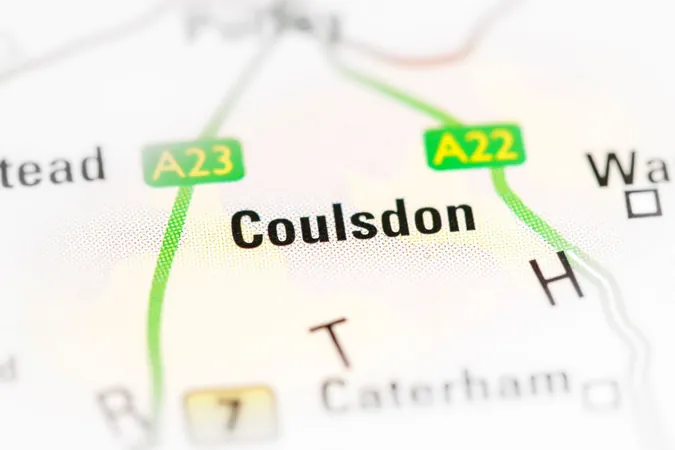
Facebook’s Algorithms Go Haywire: Small Town in England Censorship Controversy Sparks Outrage
2024-11-10
Author: Jia
Introduction
In a bizarre twist of technology and small-town life, the residents of Coulsdon, England, are voicing their frustration over what they describe as unwarranted censorship by Facebook's algorithms. This issue arises not from any wrongdoing on their part, but rather from the peculiar spelling of their town's name which inadvertently triggers algorithmic flags.
The Censorship Issue
Local reports from the blog Inside Croydon reveal that businesses and community groups in Coulsdon have faced the unusual problem of having their posts removed from Facebook pages. The culprit? The seemingly innocuous letters "LSD" embedded in the town's name, which the platform's content moderation system misinterprets as a reference to the psychedelic drug.
Impact on Local Businesses
Local business owners and neighborhood association members have reported that various posts, ranging from community theater updates to hardware store promotions, have been flagged or removed entirely. Despite countless complaints to Facebook about the situation, the issue has persisted.
Community Reaction
An anonymous local source explained to Inside Croydon, "As long as it has ‘Coulsdon’ in the title, you get the drug reference that there’s no way around."
Meta's Response
In response to the backlash, Meta, Facebook's parent company, stated that the censorship was a mistaken error that has since been corrected. However, impatience among Coulsdon's residents remains palpable—this isn't the first time Facebook's algorithmic oversight has wreaked havoc on innocent posts.
Historical Context
In previous instances, such as the 2021 uproar over posts about Plymouth Hoe—a well-known coastal landmark—which Facebook wrongly flagged as inappropriate content, the platform's algorithms have shown a troubling pattern of mishandling benign information.
Broader Concerns
Moreover, in a recent investigation by The Washington Post, it was revealed that during the devastating wildfires along the West Coast, Facebook's algorithms mischaracterized vital posts from emergency services about fire safety as spam. This led to essential updates on disaster response being sidelined and rendered ineffective, leaving many residents in peril without appropriate guidance.
Algorithmic Errors
Adding to the concern, Facebook group administrators have reported their communities facing issues where benign terms like "men" were hastily flagged as hate speech, further demonstrating how algorithmic errors can harm online discourse. Such anomalies have even led to the creation of facebookjailed.com, a platform where users share their experiences of peculiar moderation decisions, such as a harmless chicken picture getting tagged as adult content.
Statistics on Moderation Errors
Facebook’s reliance on algorithms to monitor and control content has proven detrimental, with the company documenting millions of moderation errors each month. In its latest report, Facebook recorded a staggering 1.7 million enforcement actions on drug-related content within just three months—shockingly, around 98% of these actions were algorithmically determined, with only a tiny fraction driven by user complaints.
The Need for Change
An alarming statistic revealed that content mistakenly deemed as spam exceeded 35 million posts during the same period, showcasing the urgent need for improved oversight and refinement of these automated systems.
Conclusion
As the residents of Coulsdon continue to rally for better communication with Facebook and seek clarity on content moderation, one can't help but wonder—how many other communities are suffering in silence from similar algorithmic injustices?



 Brasil (PT)
Brasil (PT)
 Canada (EN)
Canada (EN)
 Chile (ES)
Chile (ES)
 España (ES)
España (ES)
 France (FR)
France (FR)
 Hong Kong (EN)
Hong Kong (EN)
 Italia (IT)
Italia (IT)
 日本 (JA)
日本 (JA)
 Magyarország (HU)
Magyarország (HU)
 Norge (NO)
Norge (NO)
 Polska (PL)
Polska (PL)
 Schweiz (DE)
Schweiz (DE)
 Singapore (EN)
Singapore (EN)
 Sverige (SV)
Sverige (SV)
 Suomi (FI)
Suomi (FI)
 Türkiye (TR)
Türkiye (TR)